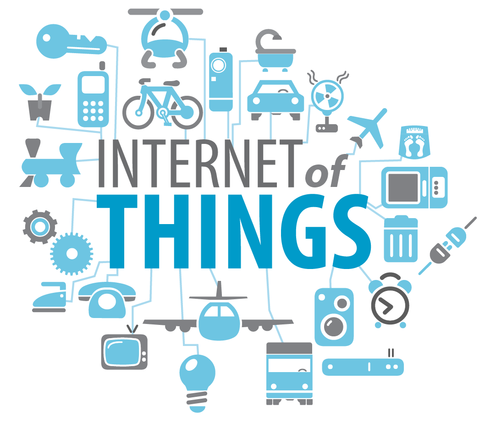The upcoming IoT Revolution hopes to connect 50 billion devices by end of 2020. The IoT Revolution aims at transforming Retail Sales industry, Aerospace and Defense Industry, Wholesale Distribution industry, Utilities industry, Oil and Gas Industry, Mining and Metal Industry, Industrial Machinery and Component manufacturing, Chemical Industry, Automotive Industry, etc.
Every aspect of IoT seems to be revolutionary. There is also a good chance of IoT Revolution to improve the quality of life for entire human society. While the technology has an important role to play in creating ample job opportunities in global economy, if care not taken by policy makers, IoT market growth would be restricted.
Internet of Things has an important role to play in the progress of today’s knowledge based economy. If the global economy cannot transition to a sustainable economy, IoT Revolution cannot become a reality. Additionally, IoT Revolution should not only come through increase in consumer purchasing power that gives increased consumer demand for goods but it should also ensure that the higher purchasing power comes through hard work and not by means of providing any dole-outs.
The IoT Revolution is very much feasible for every economy in this world as long as the playing field is levelled and the competition between them is fair. A true free market economy is essential for bringing about this next big thing. These free markets should be beneficial for not only producers but also consumer of goods. Sustainable manufacturing is essential in order to transition to next generation ecological fab. IoT Revolution also has the capacity to bring the environmental pollution under control by means of ushering a balanced economy which results in neither overproduction of goods nor underutilization of available resources.
For IoT Revolution to happen, wide range of macroeconomic principles have to be applied to existing industrial policies that helps transition the top-down hierarchical corporate culture to a more flatter organization having less rigid hierarchy. Such an organization with decentralized power and authority has a capability to increase collaboration amongst its employees through a consensus in decision making process as well as boost the efficiency of organization in order to be able to contribute towards a strong local economic development. While ensuring a success of IoT Revolution, care needs to be taken that the trade policies do not encourage counterfeiting of electronics. Majority of IoT applications will be human centric and hence counterfeits have to be not only minimized but completely eliminated from supply chain to avoid life-threatening situations from the use of IoT products.
Both producers and consumers have to prosper for a robust growth of IoT sector. The worker productivity is the main source of supply while wages are the main source of demand. If productivity rises faster than wages, then supply rises faster than demand. This results in overproduction and forces the manufacturer to fire workers. Producers are the suppliers of goods, and consumers generate the demand for these goods. Consumer demand, being dependent on wages, is sustainable only if the consumers as workers earn higher salaries. If the wages of consumers do not catch up with increased supply of goods, the supplier of goods is unable to sell all that he/she has manufactured. Hence, the monetary policy of any country needs to ensure that wages catch up with productivity. By ensuring wages catch up with productivity; it is very feasible to create plenty of jobs in economy and maintain the incentives to work hard. In this way, there is no need of excessive government spending and hence deficits, which would also reduce the direct and indirect taxes on citizens. A lower income tax on citizens would also further boost citizens’ consumer purchasing power in economy.
A sustainable economy should not only create more manufacturing jobs but also creates a number of service sector jobs catering to these manufacturing facilities. The virtual offshoring of most facilities from the United States in order to increase corporate profits, has produced the progressive diminishing of the employment base to most Americans in both intellectual and economic terms. The increasing Mergers and Acquisitions happening in semiconductor industry are not going to help but hurt this industry. Indeed, the lack of liquidity in the last seven years has not helped this situation either and hence the ownership of companies catering to the IoT market should be with the employees of those companies, as being the arbiters of their chosen investment locales and facets.
While ushering the IoT Revolution, businesses can play an important role in eliminating global poverty and unemployment through a productive use of technology. An unproductive use of any technology makes the progress of that technology unsustainable and hence ‘Sustaining Moore’s Law’ advocates a productive use of technology to eliminate the present uncertainty of ushering an IoT revolution due to a global macroeconomic crisis. It would help sustain the progress of Moore’s law and will bring an end to wage stagnation, and hence, the living standard will start to rise for all.
As is common knowledge, all indications are that the Western economy is in for a very rough ride, in particular because the Western individualized world has sacrificed so much of its social, cultural, and industrial base to external interests, and in the process has outsourced large chunks of its technical skills and knowhow to foreign agencies and lands. Life on other continents on the other hand seems to have retained more of a traditional structure. Therefore it seems probable that a sinking global economy and the eventual collapse of crony capitalism, as we know it, would harm the First and Second Worlds infinitely more than the Third. However, ‘Sustaining Moore’s Law’ presents a blueprint to usher in the next big thing of IoT Revolution for not only developed economies but also for developing economies like India.
The semiconductor industry in United States has been on the downhill along with many others. It is well known that manufacturing is fast becoming an endangered species in the United States, employing less than 10 percent of the labor force now. Semiconductors have been hit especially hard by low-wage competition from China and some other Asian nations. Dallas/Maxim just announced they are closing their production facilities in Dallas and the Failure Analysis lab along with it. Many of my ex-colleagues that were layed off from Kilby/Process Development a year ago have not found a job yet. Qualcomm is laying off 15% of its workforce and the Broadcom/Avago merger is going to create a wave of restructuring layoffs too. Hence, the Uncertainty of ushering about an IoT Revolution seems insurmountable to the industry at large.
Since the 1960s the semiconductor industry has been a driver of global economic growth and social change. Each country involved wants a large, viable semiconductor industry that provides high paying jobs. The ongoing technical and managerial crises needs a detail analysis to examine the industry from a macroeconomic perspective, helping readers understand how global competitive advantage can be won or lost unless good macroeconomic policies are implemented. This study is very relevant in today’s world and the highly dynamic semiconductor industry, since things move so fast in this digital age. Though a US-centric book, it will be very useful for the developing world as well. There is also a chapter dedicated to semiconductor manufacturing in developing economies like India.
This is the first book for which world renowned Professor of Economics and author of six international best sellers, Professor Ravi Batra, has written the Foreword. Professor Batra considers the solutions presented in this book to be both monumental as well as practical to implement. In 1978, To the laughter of many and derision of a few, Professor Ravi Batra authored a book “The Downfall of Capitalism and Communism: A New Study of History“. While his forecasts about collapse of communism earned him a gold medal of honor from Prime minister of Italy, he thinks that unless US Capitalism reforms towards a free market economy, US Capitalism is going to meet the fate of Soviet Communism due to huge concentration of wealth in the economy.
It is another interesting book as it not only focuses on technological growth but also offers solutions to make that growth sustainable by a sustainable macroeconomic growth. The book is published by Morgan and Claypool Publishers and will be available as an e-book as early as end of August 2015.




Recent Comments